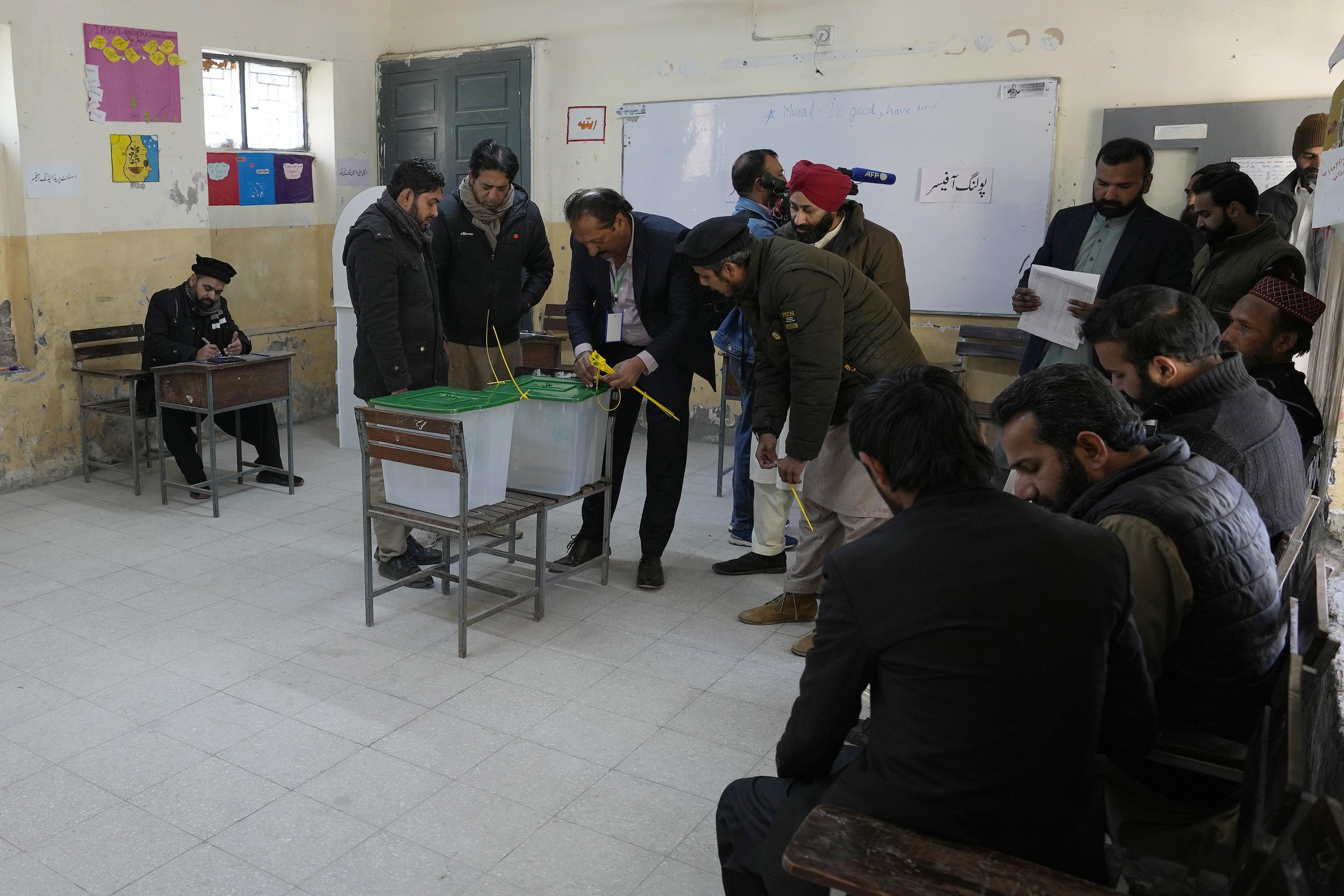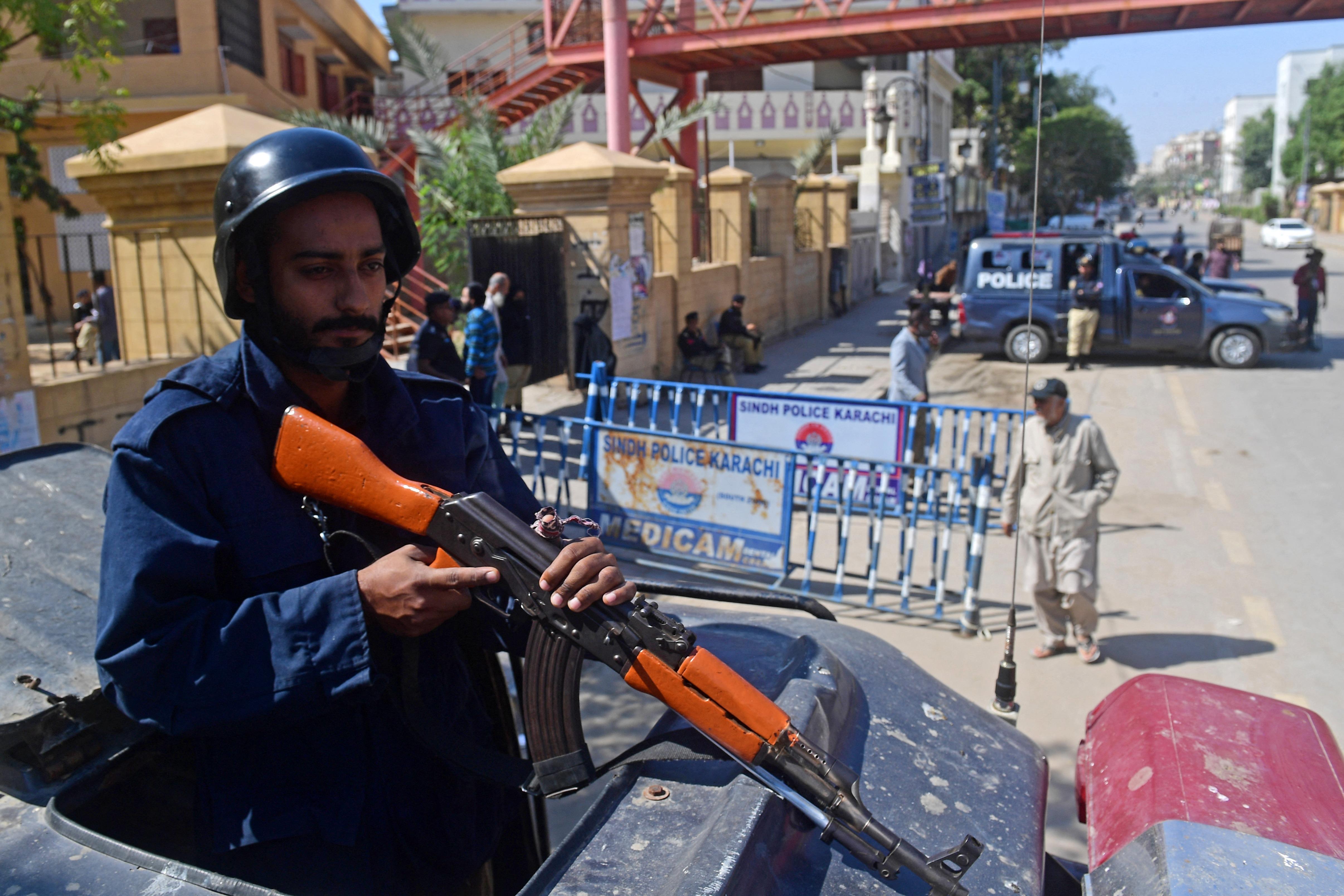 Members of polling staff seal ballot boxes to start voting at a polling station for the country's parliamentary elections, in Islamabad, Pakistan, Feb 8, 2024. (PHOTO / AP)
Members of polling staff seal ballot boxes to start voting at a polling station for the country's parliamentary elections, in Islamabad, Pakistan, Feb 8, 2024. (PHOTO / AP)
ISLAMABAD - The voting process in Pakistan's parliamentary elections concluded Thursday evening and the counting of ballots has started as nine people were reported killed during the general elections.
The Election Commission of Pakistan said that the polling started at 8:00 am local time (0300 GMT) Thursday and continued uninterrupted until 5:00 pm local time (1200 GMT).
Almost all major parties requested the ECP to extend the polling time but were rejected by the election body, which said that people who managed to enter the premises of the polling stations before the door closing time were allowed to cast their votes.
Five policemen were killed in a bomb blast and firing on a patrol in the Kulachi area of Dera Ismail Khan district in the northwest, authorities said. Another person died in firing on a security forces vehicle in Tank, about 40 km (25 miles) to the north
A mixed trend of voter turnout was observed across the country, as people thronged to vote for the National Assembly as well as four provincial assembly seats.
Counting has started at polling stations where the voting process had been completed. The ECP banned all organizations, including media houses, from announcing unofficial results of any polling station within one hour after the conclusion of the voting process.
READ MORE: Parties, candidates finish campaign for Pakistan's elections
Elections took place on 265 seats of the National Assembly, or the lower house of the country's parliament, after polls were postponed on one seat due to the death of a candidate.
According to the ECP, over 128 million Pakistani people, or more than half of the country's total population, are eligible to vote in the general elections.
Earlier, ECP announced that over 5,000 candidates would contest the 265 general seats in the National Assembly and over 12,000 candidates would be competing for the 590 general seats of the provincial assemblies in the four provinces, including Khyber Pakhtunkhwa, Punjab, Balochistan and Sindh.
Pakistan's lower house has a total of 336 members, of which 266 are directly elected by the people, whereas 60 seats are reserved for women and 10 for religious minorities. The reserved seats will be allocated to the political parties according to their proportional winning of the direct seats of the house.
At least nine people, including two children, were killed in militant attacks on Thursday as the country voted after suspending mobile phone services and closing some land borders to maintain law and order.
 An armed policeman stands guard outside a poling station during Pakistan's national elections in Karachi on Feb 8, 2024. (PHOTO / AFP)
An armed policeman stands guard outside a poling station during Pakistan's national elections in Karachi on Feb 8, 2024. (PHOTO / AFP)
The interior ministry said it took the security steps after at least 26 people were killed in two explosions near electoral candidates' offices in the southwestern province of Balochistan on Wednesday. Islamic State later claimed responsibility for those attacks.
"As a result of the recent incidents of terrorism in the country precious lives have been lost, security measures are essential to maintain the law and order situation and deal with possible threats," the ministry said in a post on messaging platform X.
Thousands of troops were deployed on the streets and at polling stations across the country as voting commenced and borders with Iran and Afghanistan were temporarily closed.
Despite the heightened security, five policemen were killed in a bomb blast and firing on a patrol in the Kulachi area of Dera Ismail Khan district in the northwest, authorities said. Another person died in firing on a security forces vehicle in Tank, about 40 km (25 miles) to the north.
ALSO READ: 24 killed in twin blasts targeting election offices in SW Pakistan
In Balochistan, a soldier from a civilian force was killed and 10 others injured in over a dozen blasts caused by grenades or improvised explosive devices, officials said, while two children died in a blast outside a women's polling station.
In spite of the security worries and bitter winter cold, long queues began forming at polling stations hours before voting was due to start. "The country is at stake, why should I come late?" said 86-year-old Mumtaz, a housewife a decade older than Pakistan itself as she queued up in Islamabad.


